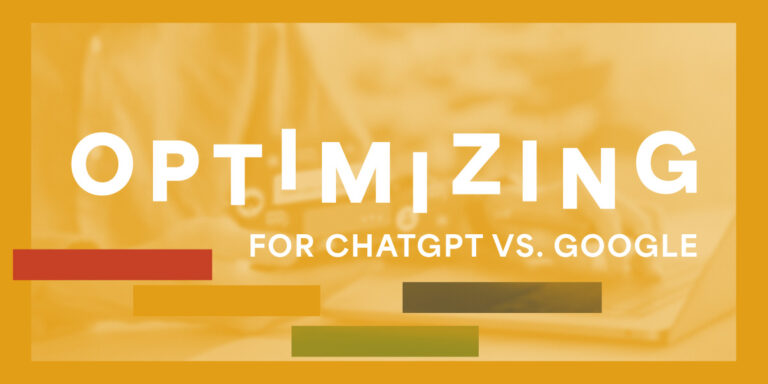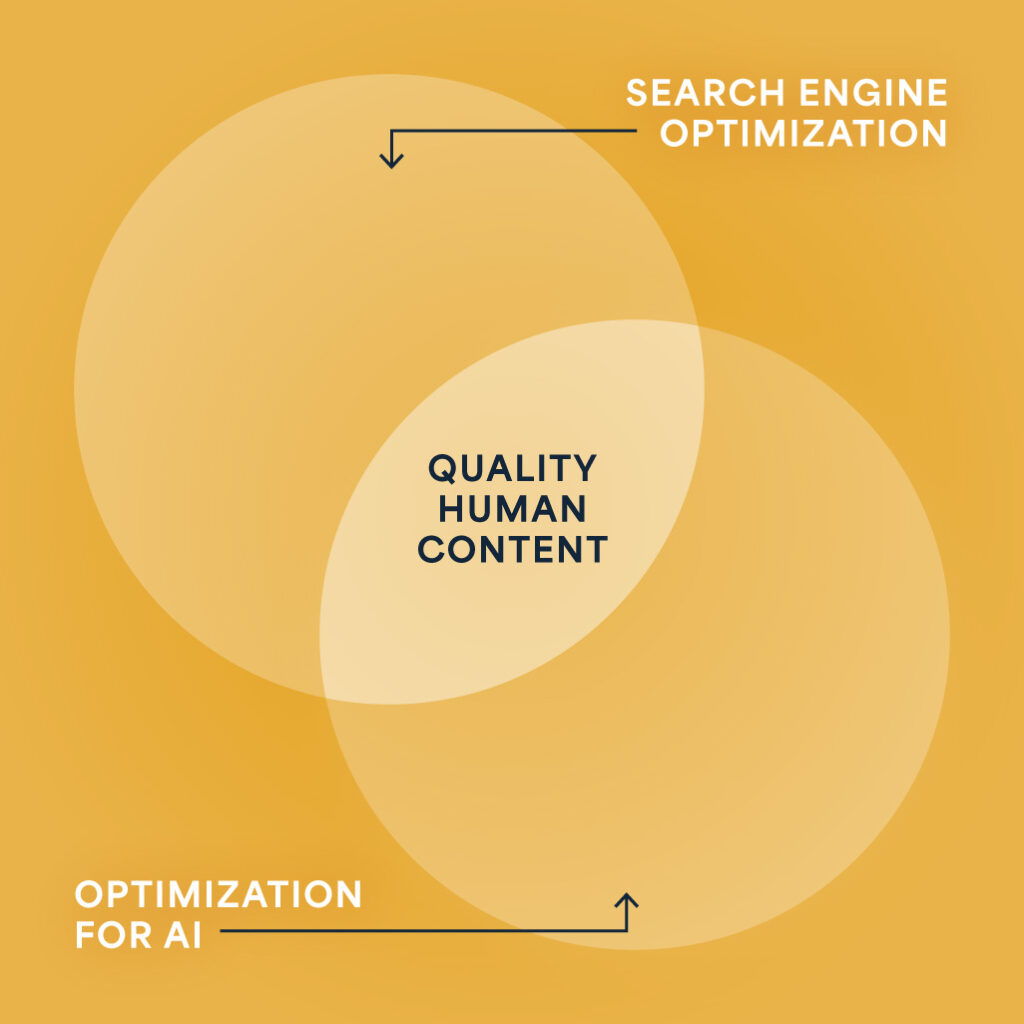
Marketers have the never-ending task of refining the rule books for search engine optimization (SEO). We’ve focused on content quality, keyword density, meta descriptions and site speed all to convince Google to show our content to the right people at the right time.
With the rapid rise of AI assistants like ChatGPT, the search landscape is shifting. Instead of typing a question into a search bar and scanning links, more people are asking AI directly – and trusting its answers. Naturally, this has raised a new question in marketing circles: should we rethink everything we know about SEO to meet the demands of AI-driven search?
The First Impression
It’s easy to assume that SEO and AI optimization might differ considerably, but when you dive deeper, it’s apparent that quality content is still key to success.
SEO emphasises making your content discoverable to search engine crawlers and ranking high for specific queries. It rewards clear site structures, relevant keywords, backlinks and consistent technical performance.
AI Optimization is about making your content understandable, quotable and information-rich so an AI can confidently quote your content as its final answer. It rewards clarity and the ability to provide context without too much fluff.
Where’s the Overlap?
Despite these differences, the same core principles will help you succeed in both areas:
- Quality content that answers real questions directly.
- Authoritative, trustworthy sources that can be verified.
- Clarity that makes information easy to understand.
- User-focused content. Don’t only focus on what you want to say, but also on what your audience wants to know.
In practice, optimizing for AI means doing all the things good SEO already demands, then adding another layer of concise, plain-language explanations that an AI can pull from without losing its nuance.

What Can You Do Now?
If you want to optimize your content for both Google and AI models, consider these steps:
- Write in a Q&A format. Direct answers to common questions trigger many AI responses. Use titles that mirror how people ask questions.
- Lead with the answer – start with the core takeaway before expanding with details.
- Use plain language.
- Cite credible sources. AI models and search algorithms both value authoritative references.
- Maintain strong technical SEO. AI still discovers a lot of content via search rankings, so everything you do to maintain your search rankings remains critical